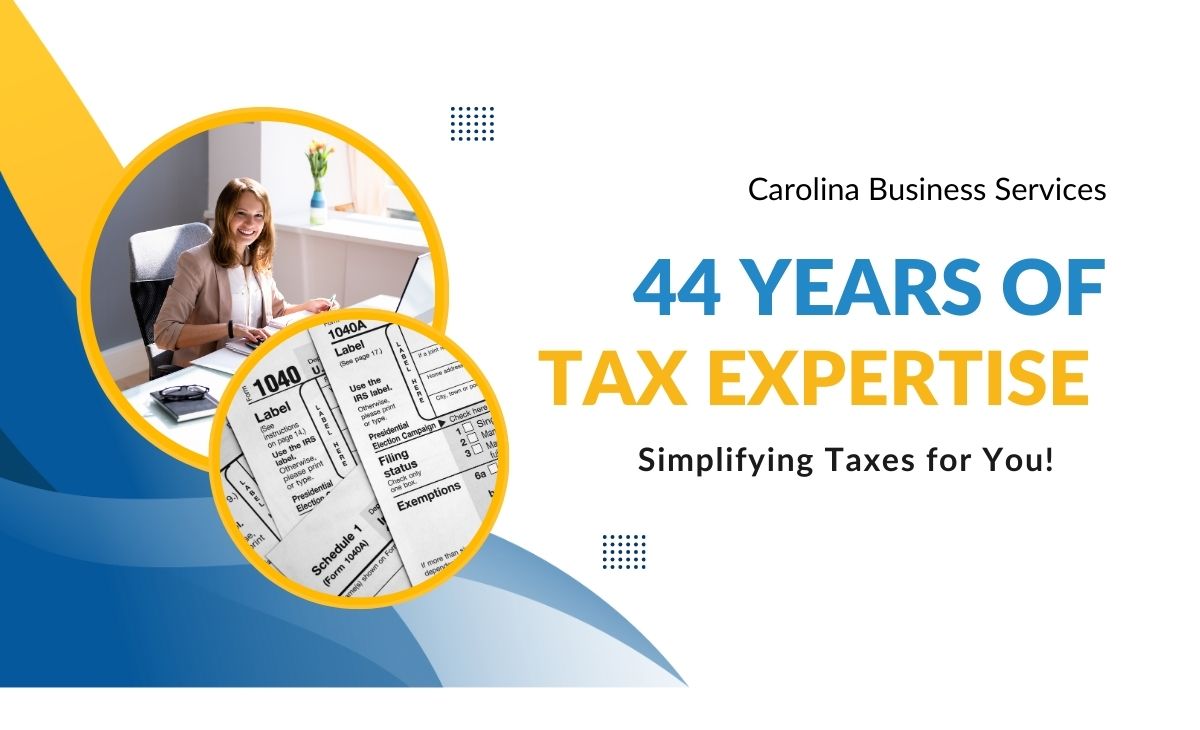Maximize Tax Savings: Deductions, Credits, Exemptions Explained
Boost Your Savings with
Smart Tax Moves
Deductions, Credits & Exemptions

Let's be honest: when tax time comes, we all want to keep more of our money and pay less to Uncle Sam.
Whether you're looking to cut your tax bill or stretch your income further, understanding deductions, credits, and exemptions can make a big difference.
In this guide, we’ll dive into simple yet effective strategies to help you reduce your taxes and keep more of what you earn. By the end, you’ll have the tools and tips you need to make informed decisions and get the most out of your tax return. So, are you ready to maximize your savings and take control of your financial future? Let’s go!
Staying Ahead of Tax Law Changes
Before we dive into the specifics of deductions, credits, and exemptions, it’s important to remember that tax laws are constantly evolving. These changes can impact what you’re allowed to deduct, which credits you can claim, and the types of income that might be tax-free.
While the fundamental principles stay the same—deductions help reduce your income that's subject to tax, credits provide a direct cut in the amount you owe, and exemptions allow certain income to avoid taxation—the specifics can shift with new laws.
Keeping up with yearly tax law changes and getting guidance from a tax advisor will help you make the most of the available tax benefits.
Power of Tax Deductions:
Lower Your Taxable Income
What Are Tax Deductions?
Think of tax deductions as your secret weapon to lower that tax bill. Essentially, deductions let you subtract certain eligible expenses from your gross income, which decreases the amount of income that's subject to taxes. It’s like having a magic wand to make part of your income disappear from the tax man’s radar. Common deductions include mortgage interest, charitable donations, and medical expenses.
Standard vs. Itemized Deductions
Here’s the big question: Do you take the standard deduction or itemize? The standard deduction is a fixed amount that you can deduct from your income, which is determined by your filing status and is adjusted annually by the IRS.
On the flip side, itemizing means listing each qualifying expense individually. It all boils down to which option saves you more money. A good rule of thumb: if your itemizable total expenditures exceed the standard deduction, go with itemizing. Otherwise, the standard deduction is simpler and might be more beneficial.
Tips to Maximize Your Deductions
- Keep Detailed Records: Save those receipts! Whether it’s for charity donations or medical bills, you’ll need proof for every deduction you claim.
- Consult a Tax Pro: Tax professionals know the ins and outs of deductions and can help you identify ones you might miss on your own.
- Stay Informed: Tax laws can change, so it’s essential to be aware of the current rules regarding deductions each year.
Example Deductions for the 2023 Tax Year
Standard Deduction: These amounts are subtracted from your gross income, lowering your taxable income:
- $13,850 single filers and married individuals filing separately
- $27,700 married couples filing jointly
- $20,800 heads of household
Charitable Contributions: A specific percentage of your adjusted gross income (AGI) can be deducted for donations made to qualified organizations. For most taxpayers, the limit is up to 60% of AGI.
Tax Credits:
Your Ticket to Directly Reducing Your Tax Bill
What Are Tax Credits?
If deductions are like magic erasers, tax credits are the gold nuggets of the tax world. Credits directly reduce the amount of tax you owe—dollar for dollar. This makes them incredibly valuable. They’re available for various situations, like supporting families, encouraging education, or promoting energy efficiency.
Types of Tax Credits
Tax credits reduce the amount of tax you owe, making them highly valuable.
They come in two forms:
- Nonrefundable credits may reduce your tax bill to zero, but they won’t put cash in your pocket if the credit exceeds what you owe.
- Refundable credits, on the other hand, can not only zero out your tax bill but also get you a refund check if the credit is larger than the tax you owe.
Tips to Maximize Your Tax Credits
- Verify Eligibility: Review the criteria for each credit to ensure you qualify.
- Gather Documentation: Keep all necessary paperwork, such as proof of education expenses or dependent care costs, to support your claim.
- Consult a Tax Professional: They can help you identify which credits apply to your situation for the current tax year and how to claim them.
Example Credits for the 2023 Tax Year
- Child Tax Credit: Up to $2,000 per qualifying child under the age of 17. It is partially refundable, allowing taxpayers to receive up to $1,500 as a refund if the credit exceeds their tax liability. Get more IRS info here.
- American Opportunity Credit (AOTC): It covers qualified education expenses up to $2,500 annually. Certain restrictions apply for a student to be eligible. The IRS covers the current AOTC details here.
Tax Exemptions:
Income That’s Off the Tax Radar
What Are Tax Exemptions?
Tax exemptions work a little differently—certain types of income are excluded from taxation, which reduces the amount of your income that is subject to tax. This can include some gifts, certain interest income, or other specific categories.
While personal exemptions have been phased out, other exemptions still apply depending on the tax laws. Knowing which exemptions you qualify for can lead to significant savings.
Tips to Maximize Your Use of Exemptions
- Document Exempt Income: Keep accurate records of any income you believe to be exempt.
- Consult with a Tax Professional: They’ll explain which types of income are exempt and how to report them correctly on your tax return.
- Stay Updated: Since tax laws can change, it’s important to know which exemptions are currently available each tax year.
Example Credits for the 2023 Tax Year
- Gift Exemption: Individuals are allowed to provide a gift amount up to $17,000 per recipient per year without paying gift tax or affecting their lifetime estate tax exclusion. This allowed for tax-free gifts to family members or others. IRS FAQ.
- Interest on Municipal Bonds: Generally, municipal bonds interest is exempt from federal income tax, and in some cases, it may also be exempt from state and local taxes. This exemption makes municipal bonds an attractive option for tax-conscious investors. Information about “Tax-Advantaged Bonds” here.
Choosing the Right Tax Benefits
for Your Situation
Which Option Is Best for You?
Your financial situation is unique, so the best tax strategy depends on your personal circumstances. If you’ve got hefty deductible expenses, itemizing might save you more than taking the standard deduction. Similarly, certain tax credits could offer substantial savings if you qualify.
Simple Rule of Thumb: If your deductible expenses (like mortgage interest, donations, and medical costs) exceed the standard deduction, consider itemizing. If not, the standard deduction is simpler and likely more beneficial.
Quick Decision-Making Tip: Consult a personal tax preparer or use tax preparation software to compare how much you would save with the standard deduction versus itemizing.
Additional Resources
to Boost Your Tax Knowledge
- IRS Website: The official source for all things tax-related. You can find forms, instructions, and a wealth of information on deductions, credits, and exemptions.
- IRS Guide: Tax deductions and credits are explained directly by the IRS.
- Credit Karma: Details about tax exemptions are explained in simple terms.
- Kiplinger’s Tax Guide: Dive into a wealth of articles and tools to help you navigate tax rules and maximize deductions.
- Bankrate Tax Guide: Offers user-friendly articles and tools on tax topics ranging from tax brackets to filing tips.
- Carolina Business Services: Tips & Free Resources for individual and small business income tax preparation.
- Free Tax Planning Checklist PDF Download: Comprehensive checklist to make sure you’re fully prepared for tax season, covering everything from deductions, credits, and exemptions to essential documents.
Putting It All Together:
Making the Most of Deductions, Credits, and Exemptions
Understanding the differences between tax deductions, credits, and exemptions can lead to significant savings during tax season.
Quick Recap:
- Tax Deductions lower your taxable income by subtracting eligible expenses from your gross income. This can place you in a lower tax bracket and reduce your tax liability.
- Tax Credits offer dollar-for-dollar reductions in the amount of tax you owe, potentially leading to refunds if the credits exceed your tax bill.
- Tax Exemptions allow you to exclude specific types of income from being taxed, which helps to reduce the overall amount of income that's subject to taxation.
With the tips and strategies outlined in this guide—such as keeping detailed records, consulting a tax preparation specialist, and staying informed on current tax laws—you can make informed choices that maximize your tax savings. Whether you itemize your deductions, take advantage of valuable tax credits, or leverage applicable exemptions, understanding these key concepts will help you keep more money for your daily needs and future goals.
Frequently Asked Questions:
Maximize Your Tax Savings
Is it possible to use both the standard deduction and itemized deductions on my tax return?
No, you must choose either the itemized deductions or standard deduction, not both.
If your itemized deductions, like those for mortgage interest, charitable donations, and medical costs, exceed the amount of the standard deduction, then itemizing could be the better option.
Otherwise, the standard deduction is more uncomplicated and might provide greater benefits.
What happens if my tax credits exceed the amount of tax I owe?
Some credits are refundable, meaning if they exceed your tax liability, you get the difference as a refund.
For example, with the Earned Income Tax Credit (EITC), if it’s larger than your tax bill, you’ll receive the remaining amount as a refund.
How do I know if I qualify for specific tax credits?
IRS WebsiteEligibility criteria vary by credit. Factors like income, filing status, and personal circumstances (like dependents or education expenses) all play a role.
The IRS offers online tools to check eligibility or consult a tax professional.
How can I maximize my tax savings if I don’t have many deductions?
Focus on maximizing tax credits, which directly reduce your tax bill. Also, review any exemptions that might apply. Even without significant deductions, these can help lower your tax burden.
Wrapping It Up
You work hard for your money, so let's ensure you keep as much of it as possible. By understanding and applying deductions, credits, and exemptions, you can save more and invest in your future. Take control of your taxes today and increase your savings. Here's to keeping more of your money where it belongs—in your pocket!
Taxing Times

Get In Touch

About Carolina Business Services
For over 40 years, our firm has been a trusted provider of income tax preparation services to individuals and small businesses across Spindale, Rutherfordton, and Forest City, NC. Our vast expertise and knowledge allow us to handle tax preparations - from simple to complex - across all 50 states and for US citizens living abroad.
Our personalized and efficient tax preparation services are designed with you in mind, and our friendly and fast approach means you can count on us to work for you.
So why wait?
Contact us today!
Centrally Located
Rutherford County, North Carolina
Copyright © 2023 Carolina Business Services - All Rights Reserved.













